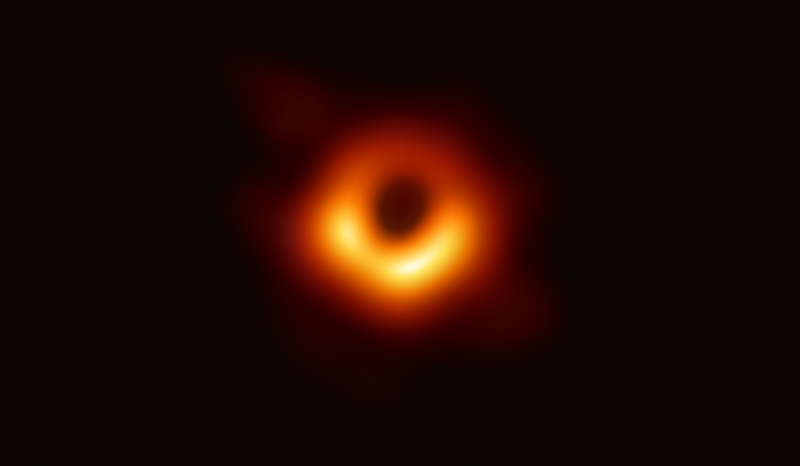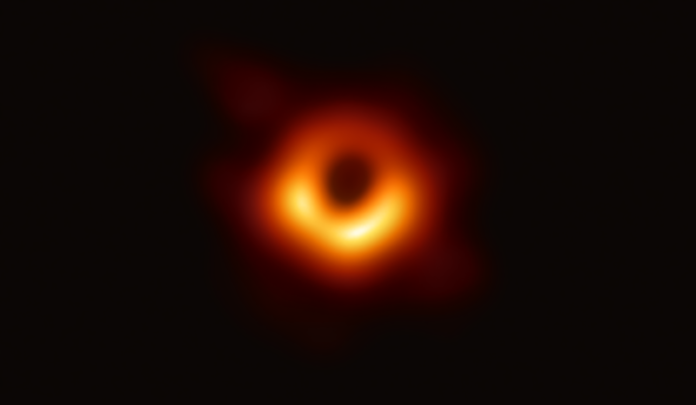
Image Credit: EHT
Researchers at the Event Horizon Telescope (EHT) revealed, the first-ever photo of a Black Hole and its shadow, 55 Million light-years away from earth which is estimated to be 6.5 billion times heavier than the Sun.
The Black Hole is said to be situated at the centre of Messier 87 galaxy, in the Virgo Galaxy Cluster. This was revealed on the 10th of April 2019, in a Global press conference. This extraordinary discovery has been published in a six-paper series, in The Astrophysical Journal Letters. According to Prof. Sheperd S. Doeleman, the lead Astrophysicist at the EHT, “ We have taken the first picture of a Black Hole. This is an extraordinary scientific feat accomplished by a team of more than 200 researchers.”
For years, the EHT project has been observing, the most extreme entities in the space and universe, thanks to its very powerful and precise, virtual, Earth-sized telescope system, which links across the global. They initially studied, two different galaxies with two supermassive Black Holes at the centre. Their research was based on Einstein’s General Theory of relativity (1915) which is dubbed as the most beautiful of all existing physical theories. This explains the laws of gravity and its correlation with other existing forces.
So what do we know about ‘Black Holes’?
As once described by Prof. Sheperd S. Doeleman, it is ‘A one-way door from our universe’. A cosmic object with a gargantuan mass, yet with a significantly compact size. A Black Hole is very black that there is no light to emit back. This makes it impossible to observe whatever happens in the middle of a Blackhole! And it is believed to be absorbing or suck in every other cosmic entity imaginable on its way. It is that powerful. A Black Hole has the ability to warp its surrounding environment, by twisting the space-time and ‘superheating’ anything left outside of it.
But in an era of endless talent, knowledge, precision and curiosity with the added advantage of an earth-sized virtual telescope, finding a Blackhole was not impossible, still extremely difficult! The team’s hope was to capture the ‘Event Horizon’ of a Blackhole, where light can escape the powerful pull, a border of a Black Hole. It had to be a ring of light, where radiation and matter moving at an immense speed. As Einstein predicted, it had to be a perfect round in shape, or otherwise, the laws of physics had to be rewritten, proving he would have been wrong.
Einstein has proved again, that his theories are never to be doubted nor to be argued, but to be observed! So there it was, a perfect round of light, centring the Black Hole’s Silhouette or the shadow. The first-ever photograph of an unseeable Black Hole!

